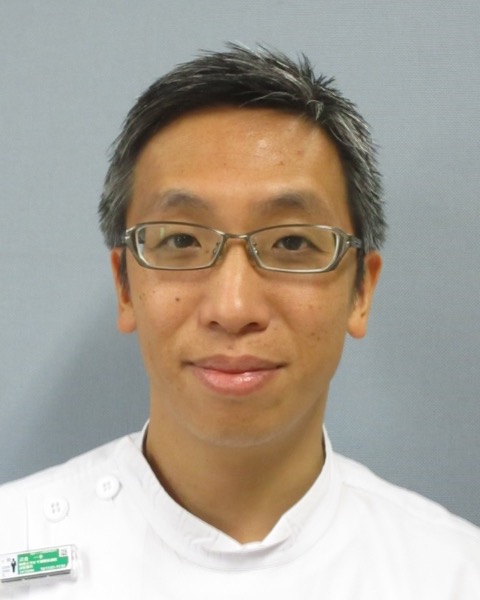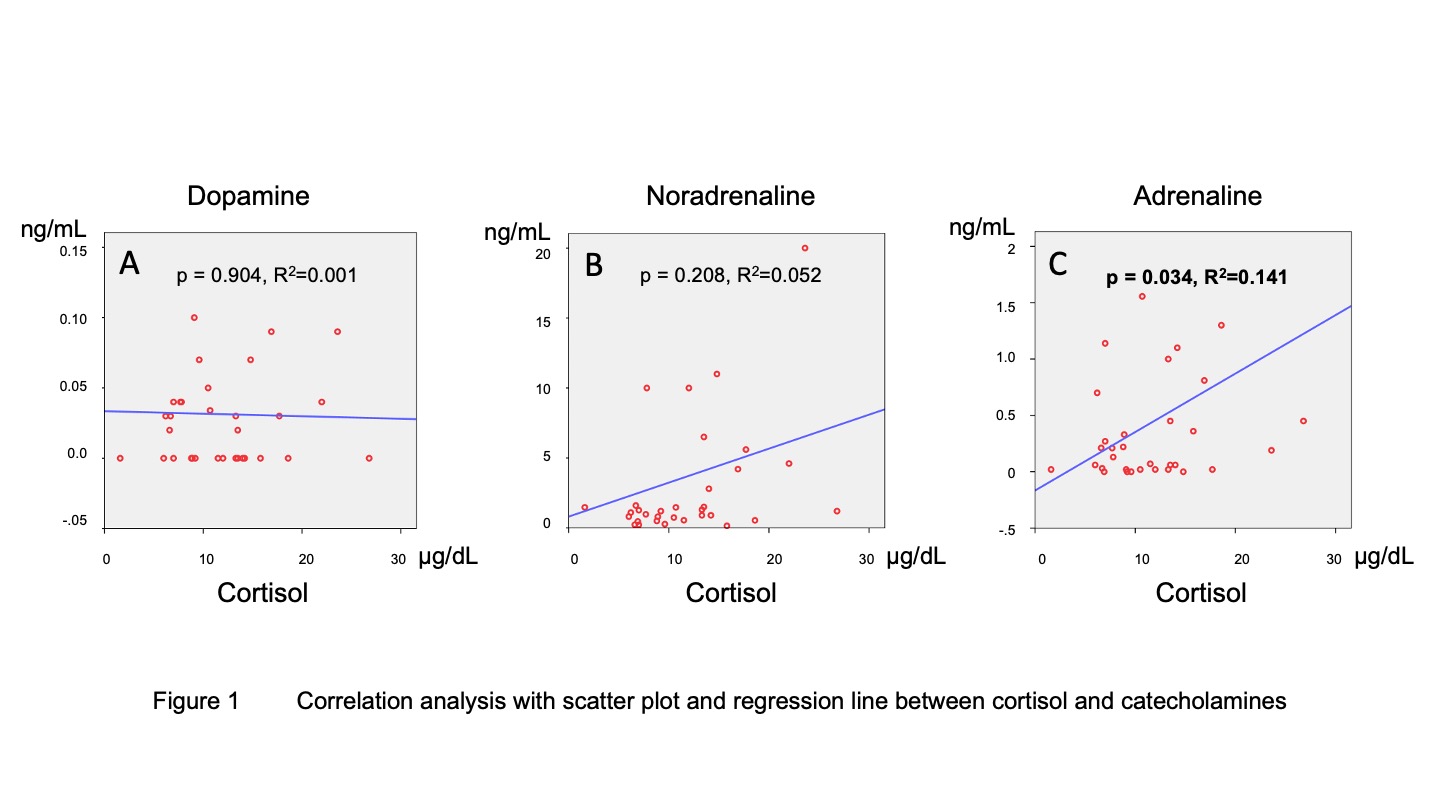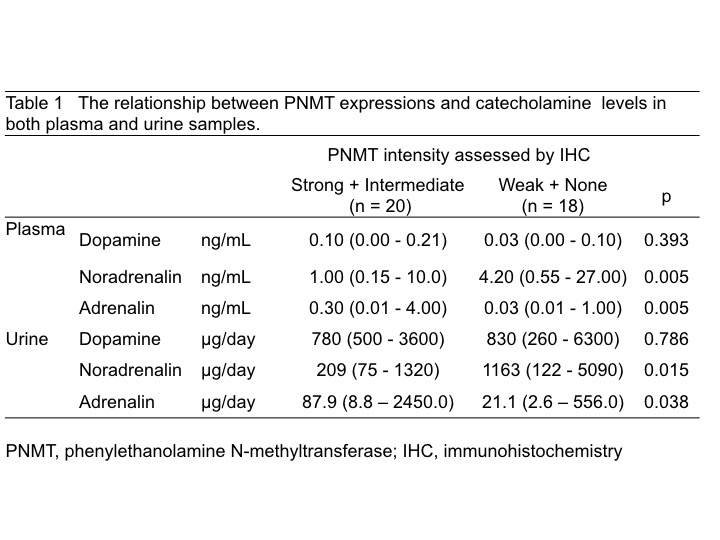Back
Poster, Podium & Video Sessions
Podium
Adrenal
PD04-01: Cortisol regulates adrenaline synthesis via phenylethanolamine N-methyltransferase in surgical specimens of pheochromocytoma
Friday, May 13, 2022
7:00 AM – 7:10 AM
Location: Room 244
Kazuyuki Numakura*, Yuya Sekine, Yumina Muto, Mizuki Kobayashi, Soki Kashima, Ryohei Yamamoto, Atsushi Koizumi, Taketoshi Nara, Mitsuru Saito, Shintaro Narita, Tomonori Habuchi, Akita, Japan

Kazuyuki Numakura, MD
Akita University Graduate School of Medicine
Podium Presenter(s)
Introduction: Tyrosine hydroxylase (TYH), dopamine ß-hydroxylase (DBH), and phenylethanolamine N-methyltransferase (PNMT) are key catecholamine synthetic enzymes (CSE) for biosynthesis from tyrosine and known for being coordinated by adrenal cortical hormones. However, little is known about the function and relationship of cortisol and CSEs for pheochromocytoma. In this study, we investigated an association between cortisol, CES, and catecholamines in pheochromocytoma patients treated by laparoscopic surgery (LA).
Methods: From September 1997 to January 2020, we performed LAs for 211 patients at the Akita University hospital. Of these, 39 patients were diagnosed with pheochromocytoma based on preoperative endocrinological evaluations and studied morning cortisol levels before surgery. Expressions of TYH, DBH, and PNMT were evaluated and classified positively by immunohistochemistry in the surgical specimens.
Results: The mean age of the patients was 59.0 years (range, 34–77 years; 14 men and 22 women). The mean tumor diameter was 4.3 cm (range, 1.8–8.5 cm). All laparoscopic surgeries were completed successfully. PNMT expression was very varied in individual patients (positivity: strong 17, intermediate 3, weak 7, and none 12) meanwhile, TYH and DBH were strongly expressed in all specimens. Morning cortisol value was associated with high plasma adrenaline level (correlation coefficient 0.376, p = 0.034) (Figure 1). Additionally, patients with strong PNMT expression showed higher adrenaline level in both plasma (0.30 ng/ml vs 0.03 ng/ml, p = 0.005) and urine (87.9 µg/day vs 21.1 µg/day, p = 0.038) (Table 1).
Conclusions: Cortisol secretion is positively related to adrenaline levels in pheochromocytoma patients. Strong PNMT expression is associated with a high level of adrenaline secretion. Thus, cortisol might regulate catecholamine synthesis via PNMT.
Source of Funding: none


Methods: From September 1997 to January 2020, we performed LAs for 211 patients at the Akita University hospital. Of these, 39 patients were diagnosed with pheochromocytoma based on preoperative endocrinological evaluations and studied morning cortisol levels before surgery. Expressions of TYH, DBH, and PNMT were evaluated and classified positively by immunohistochemistry in the surgical specimens.
Results: The mean age of the patients was 59.0 years (range, 34–77 years; 14 men and 22 women). The mean tumor diameter was 4.3 cm (range, 1.8–8.5 cm). All laparoscopic surgeries were completed successfully. PNMT expression was very varied in individual patients (positivity: strong 17, intermediate 3, weak 7, and none 12) meanwhile, TYH and DBH were strongly expressed in all specimens. Morning cortisol value was associated with high plasma adrenaline level (correlation coefficient 0.376, p = 0.034) (Figure 1). Additionally, patients with strong PNMT expression showed higher adrenaline level in both plasma (0.30 ng/ml vs 0.03 ng/ml, p = 0.005) and urine (87.9 µg/day vs 21.1 µg/day, p = 0.038) (Table 1).
Conclusions: Cortisol secretion is positively related to adrenaline levels in pheochromocytoma patients. Strong PNMT expression is associated with a high level of adrenaline secretion. Thus, cortisol might regulate catecholamine synthesis via PNMT.
Source of Funding: none



.jpg)
.jpg)